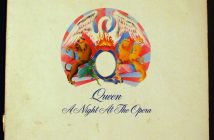Over the 15 years of its televised run in the UK, The X Factor has birthed artists like One Direction, Little Mix, Leona Lewis and Olly Murs to name just a handful. However, there are a lot of discussions nowadays about whether the X Factor and associated institutions (*cough cough* SYCO) supported or neglected the artists they launched.
The first thing we should address is the relevance of artists, winners and runners-up within the year after they leave The X Factor. More often than not, especially in the noughties when the show was much more about star quality, artists would stick in the mind of the public eye, get radio play on songs they released, decent promo and marketing etc. However, it never took long for the artists to become irrelevant and “fall off”. Whether this is because of the constantly evolving nature of the industry or the apathy of SYCO to continually push these artists after a while remains unknown, but I think there is more evidence to point to the latter. There are a few artists from the Noughties winners and runners-up list that we’ll likely remember. Leona Lewis is one of the maybe two or three names we still call upon when talking about X-Factor winners from the era.
Watch Leona Lewis’s X Factor audition here, via YouTube:
I think this is why The X Factor worked as well as it did, though, as much as I criticise its nature. It was always exciting to see the fresh and new artists that the show pushed, however, in hindsight, it was to the detriment of the artists from the previous year, who were promised a career of success – not just a year or two. Winners of the show were quickly forgotten, taking hiatuses and eventually changing careers. Leona Lewis is probably the most notable winner of the noughties, and she too has changed careers in the acting industry.
My next criticism comes from my memory of the X-Factor, and some examples from the post-noughties, but I know this is a problem with the group category within the show. The first few notable groups to come out of X Factor were JLS, The Wanted and One Direction. (Yes, the latter two come from 2011 but shhh… nobody has to know). Each of these groups has a common storyline, as well as many of the other groups, if not all – they split up, and it took a lot of time for the ones who did get back together to do so. The question is why? What happened to each of these groups that caused this? The simple, very pessimistic viewpoints to SYCO. It’s commonly known that the label and management overworked the members of these groups to the point of conflict and disruption. Each member was typecast and exploited so it would come as no surprise that eventually, these groups called it quits.
The only reason bands like JLS and The Wanted got back together was because of genuine love between members. Take The Wanted for example. They reunited in the middle of a global pandemic because they knew that that was their life’s work. With Tom’s cancer diagnosis in 2020, the members knew that Tom’s greatest wish was to get the band and the fans back together. So they toured and reunited with their fans, just weeks before we lost the brave Tom Parker to his battle against glioblastoma. The X Factor played no part in this. It isn’t a unique case, and if I said the words “Stereo Kicks”, “Little Mix” or “One Direction”, you’ll be able to see these parallels of victimisation, exploitation, and frankly bullying. Why did Simon ever think an 8-piece boy band could ever work amidst the bullying of Reece by his bandmates as well as the judges?
These criticisms are few, and there are many others as well as many attributes, but it’s easy to see the problems. The X Factor gradually became unpopular; made into essentially a reality show rather than a talent show, and that’s why I don’t think too much of the show anymore. I think overall the concept for the show is good but there are so many downfalls and problems that I think at the end of the 15 years, there were few people that were sad to see it go.
Watch One Directions’ X Factor auditions here, via YouTube:




